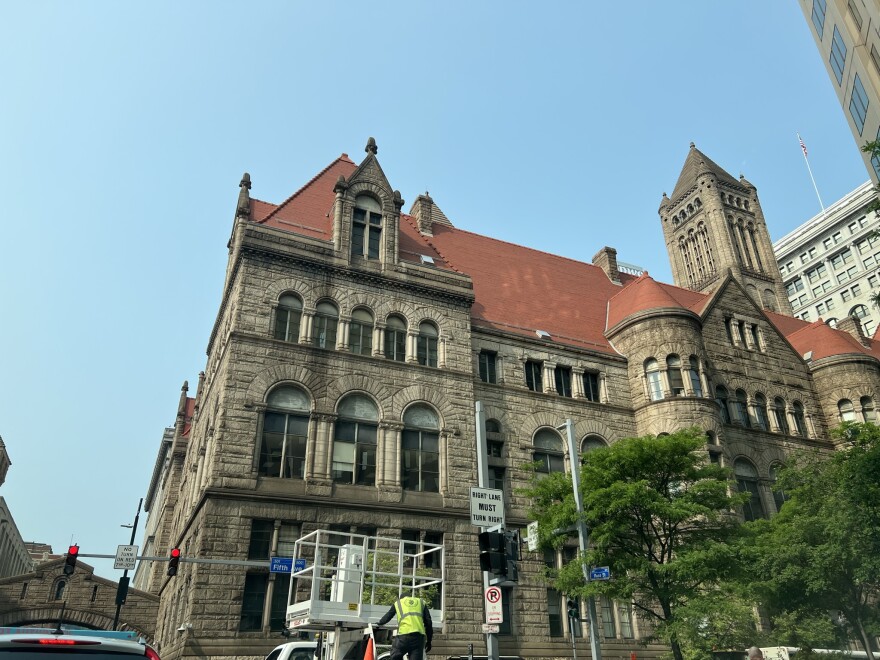Some Allegheny County Council members hesitant to support a proposed tax increase are urging county budget officials to identify possible cuts in next year’s budget — despite County Executive Sara Innamorato’s repeated warnings against austerity measures.
At council’s third and final budget hearing Wednesday, members sparred with County Manager John Fournier over the administration’s proposed $1.2 billion spending plan, which would include a 2.2 mill property tax hike. Fournier said it’s necessary to plug a projected $81 million deficit and deal with the end of the COVID pandemic-era federal funds that once offset it.
But most council members have been reluctant to embrace the proposal, calling it “dead on arrival” and maintaining it lacks the support necessary to pass.
Fournier painted a dire picture of county finances if council were to approve a smaller tax hike.
Without any increase, he said the deficit would balloon to $148 million — a figure far outweighing the county’s reserve funds — leaving the government functionally insolvent. A 1 mill increase would require leaders to cut $95 million from the proposed budget.
All departments “would be considered for deep cuts, if not complete elimination, under that budget proposal,” he said, adding it would put matching money the county currently receives from the state and federal governments for the Department of Human Services, among others, at risk.
“That level of budget cutting, simply put, would be catastrophic for this organization,” Fournier said.
He argued attempting to shield DHS from cuts would require eliminating entire departments critical to daily county operations.
Director of Budget and Finance Tim Cox added because the county has not increased taxes for more than a decade, a 2.2 mill increase is necessary just to account for inflation.
Fournier pushed back on council pleas to find and cut waste in the budget. He said extraneous costs were eliminated during past budget cycles, arguing they were necessary to make the budget work, even with federal pandemic aid.
Departments are “constantly squeezing money out of their operations to meet the immense demand that there is in Allegheny County for more services and for more efficient services,” he said.
“Nobody is sitting on vast sums of money or vast sums of waste in this county. We are constantly looking for it.”
Though he acknowledged some line items could likely be eliminated, any cuts would be “completely inadequate to address the size of the fiscal problem that we have right now with Allegheny County.”
“The position of the county executive remains that we need 2.2 mills to keep the county operating,” Fournier told council. “However, we cannot really even begin to negotiate a budget proposal that is limited at a 1 mill increase.
“We need to find a way to bring this discussion to some point of reality.”
Still, some council members remained dubious about approving the requested tax increase.
“I don't think we can get to a 2.2 mill increase with 10 members of our council,” the minimum needed to approve any change to real estate tax rates, said Nick Futules.
“I'm being honest here. I don't know where the line is right now or [where] it's going to be or could be.
“But I think it's going to be up to the administration to prove to this council that necessary things have to be done in order to move forward. And that's difficult.”
Council has yet to propose alternatives, as Innamorato has asked them to do. Members have privately suggested smaller tax increases but have yet to discuss them in public.
Constituents could get a hint next week of what council is considering at a council committee on budget and finance meeting.
Innamorato and the council must approve the budget by Dec. 6.





